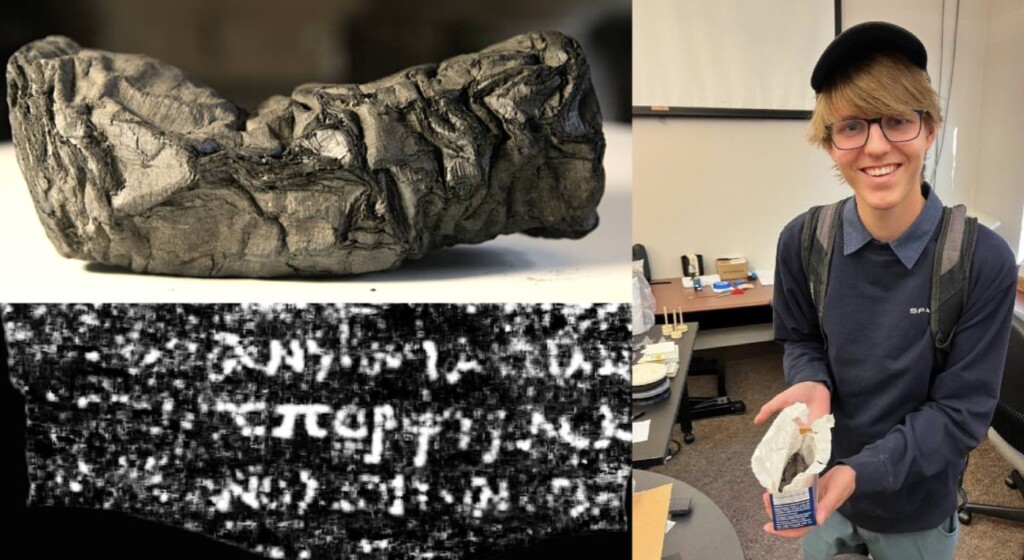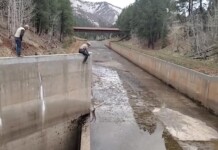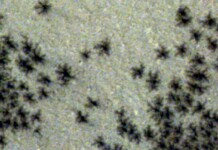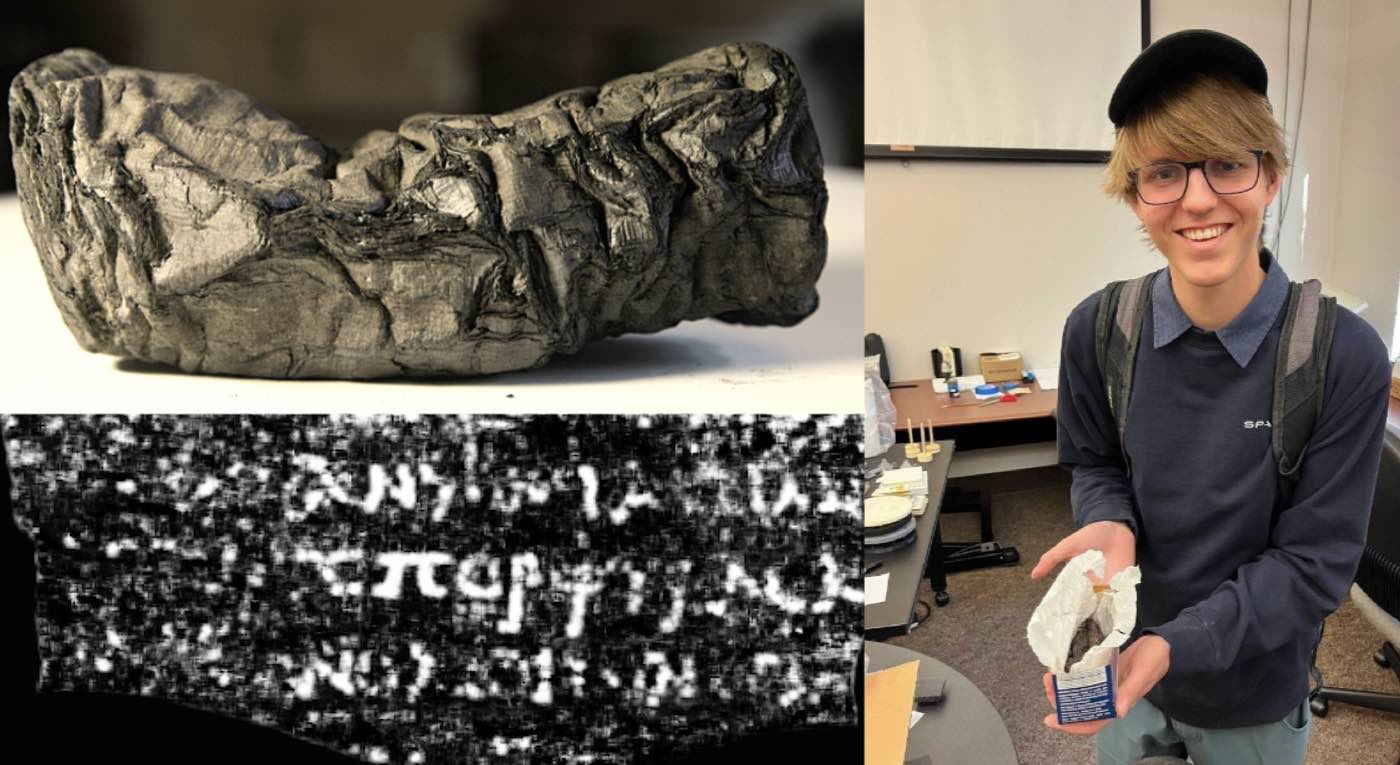
With the help of AI, a word written on a papyrus scroll 2,000 years ago and destroyed in a library in Pompeii has been deciphered, an astonishing feat that puts Roman scholars on the cusp of rediscovering knowledge from the era.
If you saw the Herculaneum scroll in question, you’d think it was a piece of charcoal, and in a sense it is. Carbonized by the heat and gases, but safe under rubble, it and nearly 2,000 others like it were discovered in 1,752, but have remained in museum storerooms ever since.
It has been believed for some time that technology could be used to access the writing on some of these scrolls. This year, Silicon Valley figures Daniel Gross and Nat Friedman created the Vesuvius Challenge, to place up to $1 million in cash prizes in the hands of any engineers who could program AIs to read the carbonized papyrus.
Luke Farritor, one such contestant of the Vesuvius Challenge, became the first person in two millennia to see an entire word from within an unopened scroll this August when his machine learning module found ink strokes, complete letters, and finally, πορφύραc.
Porphyras (πορφύραc) means purple, a color associated with royalty, but ‘papyrologists’ noted that it’s impossible at the moment to rule out either the noun, purple dye, clothes; or the adjective, purple.
Farritor, a college student and SpaceX intern, started working on the deep learning module after hearing about CT scans done of the papyrus scrolls on a podcast. Another contestant, Casey Handmer, had revealed “crackles” in the material through arduous study that he determined were the strokes of a stylus.
The Herculaneum is the largest known library that has survived from classical antiquity. Larger ones have been found in parts of Mesopotamia because the contents were written on clay tablets. It’s believed to have belonged to Julius Caeser’s father-in-law, and since the 1,700s, some of the papyrus scrolls have been shown to contain works from Greek philosophers like Epicurus and Philodemus.
YOU MAY ALSO LIKE: Artificial Intelligence ‘Can Help Spot Early Signs of Cancer in Chest X-Rays’
The contest still has a $700,000 grand prize available to anyone who can decipher four separate passages across two scrolls.
National Geographic, reporting on the speed at which the 2,000 contestants have been working on deciphering the scrolls, spoke with Brent Seales, a computer scientist at the University of Kentucky who has worked in this field for 20 years, started an initiative at the university for digital restoration of unreadable ancient texts, and co-directs the Vesuvius Challenge.
MORE POMPEII DISOVERIES: Alongside What Appears to Be Pizza, Recent Pompeii Excavations Reveal Yet More Hidden Treasures
“We’ve seen 10 or 20 person-years of work from these competitors,” Seals told Nat Geo. “Some people might think, ‘What are you going to all that trouble for?’ but I don’t believe that. This is an amazing period in human history. We’re talking about more works from that period.”
SHARE The Cusp Of Discovery That These Brilliant Minds Have Put Us On…




















